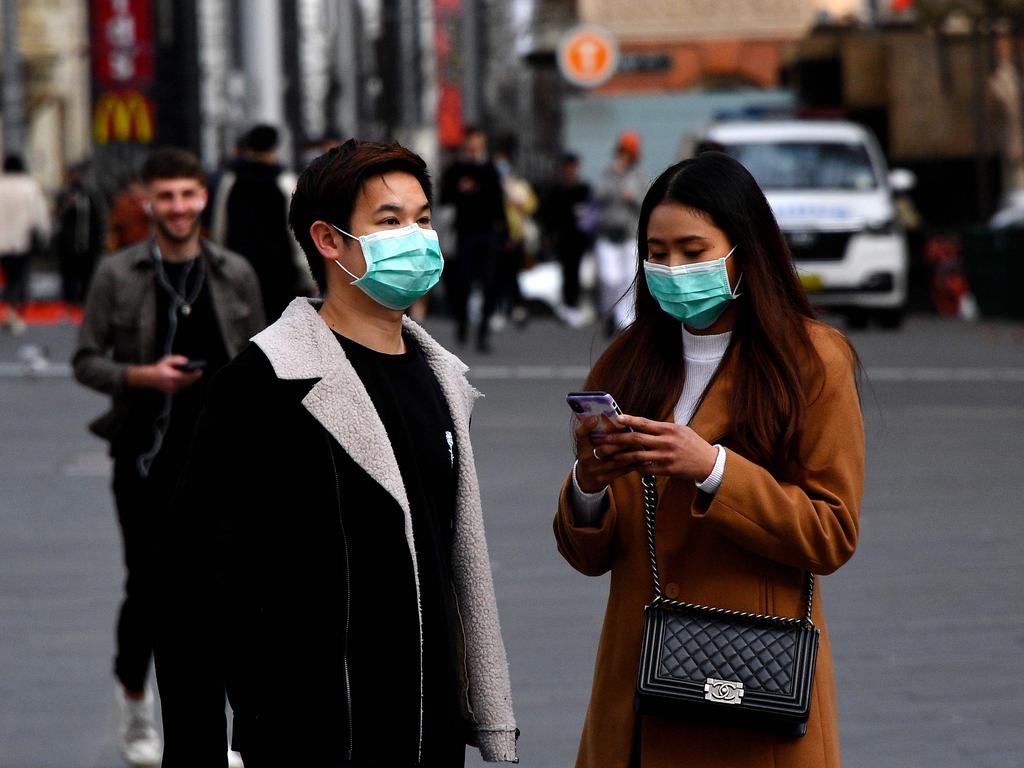Coronavirus: Australia told to brace for ‘bitter aftermath’ of pandemic
The COVID-19 pandemic came as a “savage” shock to many and Australia is now facing a “bitter aftermath” that will last years.
Even with Victoria is still in the grip of a second wave of COVID-19 infections, Australians should brace themselves for the “bitter aftermath” of the pandemic and what it means for the economy.
That’s according to a new research paper by Dr John Edwards, a Senior Fellow at the Lowy Institute, which found that though Australia is emerging from the coronavirus pandemic in a lot better shape than some other countries, it is still facing a unique set of challenges.
Australia’s unemployment rate is alarmingly high and is continuing to rise, despite economic assistance from the government.
“The bitter aftermath includes high and rising unemployment, vastly increased government debt, and a markedly less congenial global economy,” Dr Edwards wrote.
“As the pandemic recedes, it is evident that global output and demand will recover slowly and unevenly.”
RELATED: Follow our latest coronavirus updates

RELATED: Truth about PMs vaccine policy
Dr Edwards said while Australia’s economy is expected to do much better than many other advanced countries, the damage from the pandemic is still substantial and will have “lingering effects”.
“The number of unemployed will soon exceed 1.3 million. With falling revenues and rising spending, the Australian government budget deficit is heading to a new record peacetime high, more than doubling the recent record deficit for the 2019/20 financial year,” he wrote in the paper.
“By the end of this decade Australian government debt as a result of the pandemic may well be more than half a trillion dollars higher than it would otherwise have been.”
The economic sufferings of the rest of the world will also have an impact on Australia, with it likely being some time before the rate of foreign students and international tourists coming to the country resumes to pre-COVID levels.
The paper noted it will likely take the rest of 2020 and most of next year to get Australian output and employment back to where it was at the end of 2019.
PANDEMIC A ‘SAVAGE’ SHOCK TO AUSSIES
Dr Edwards said the pandemic came as a “savage” shock to the majority of Australians.
“The COVID-19 pandemic from which Australia is now emerging was the most abrupt,
savage, and frightening economic shock in the lifetime of most Australians. But the jolt
was also short and unexpectedly shallow,” he wrote in the paper.
“It produced a deliberate cessation of certain activities, some brought about by government, and others by people’s fear of infection.
“The headlines announcing plunging output, rising unemployment, and plummeting
retail sales — indicators that would in other years have portrayed an alarming and
sudden economic slump — did not carry the same message in this new environment.
“These numbers meant government edicts were being observed, that social distancing
and partial lockdowns were working, and that policies to suspend activities likely to
spread infection were effective.”
Politics is one of the other sectors that has also been massively changed by the coronavirus, according to Dr Edwards.
“Stubbornly high unemployment will now be a central issue in the next election, likely to
be in 2022 — the first time unemployment will play such a pivotal role in an Australian
election in over a quarter-century,” he wrote.
“This issue will pose a choice between the rapidity with which increasing government debt can be reined in, the speed at which jobs can be created and unemployment reduced, and the degree to which long-proposed changes to the tax structure and industrial relations can be pressed in the name of pandemic recovery.”
He noted future political debates will not be based on what has happened in the past but what will be done to resolve it, particularly focusing on reducing the unemployment rate.
DETERIORATING RELATIONSHIP WITH CHINA
The impacts of the pandemic on a global stage are far reaching, with amplified tensions between the US and China putting pressure on Australia.
The pandemic has led to a further deteriorating of Australia and China’s relationship, Dr Edwards noted.
RELATED: ‘Australia to blame’ over China trade spat

“This discord could have a far greater impact on Australian security and prosperity than COVID-19,” he wrote.
“Even without the worsening of Australia – China relations, the larger trade and technology altercation between America and China threatens the global openness of trade and investment upon which Australia’s prosperity depends.”
The research paper highlighted how Australias’s economic policy choices are constrained by those made by larger powers, like the US and China, with the combative relationship between the two countries making the situation even more difficult.
“The pandemic has made this quarrel more intractable, threatening to draw Australia deeper into the dispute, despite the Prime Minister’s 2018 insistence that ‘Australia doesn’t have to choose, and we won’t choose’ sides in the US – China trade and technology war,” Dr Edwards wrote.




